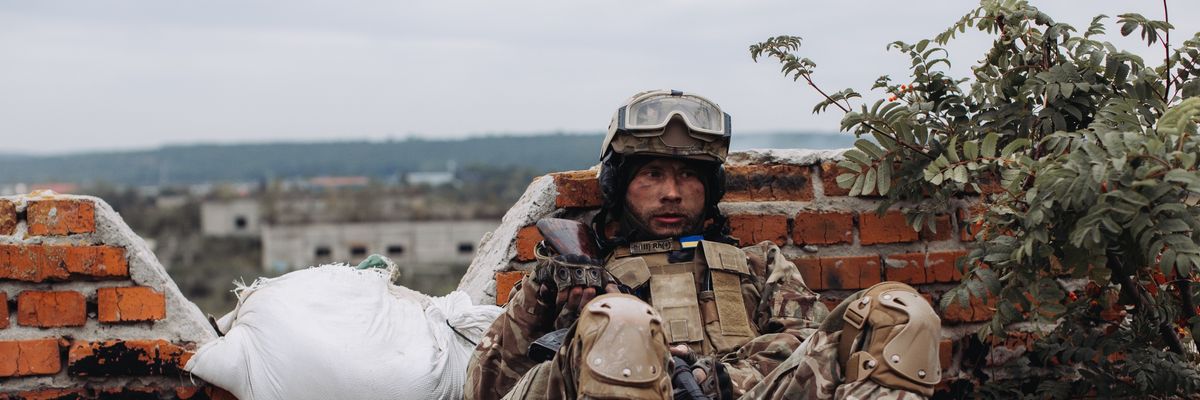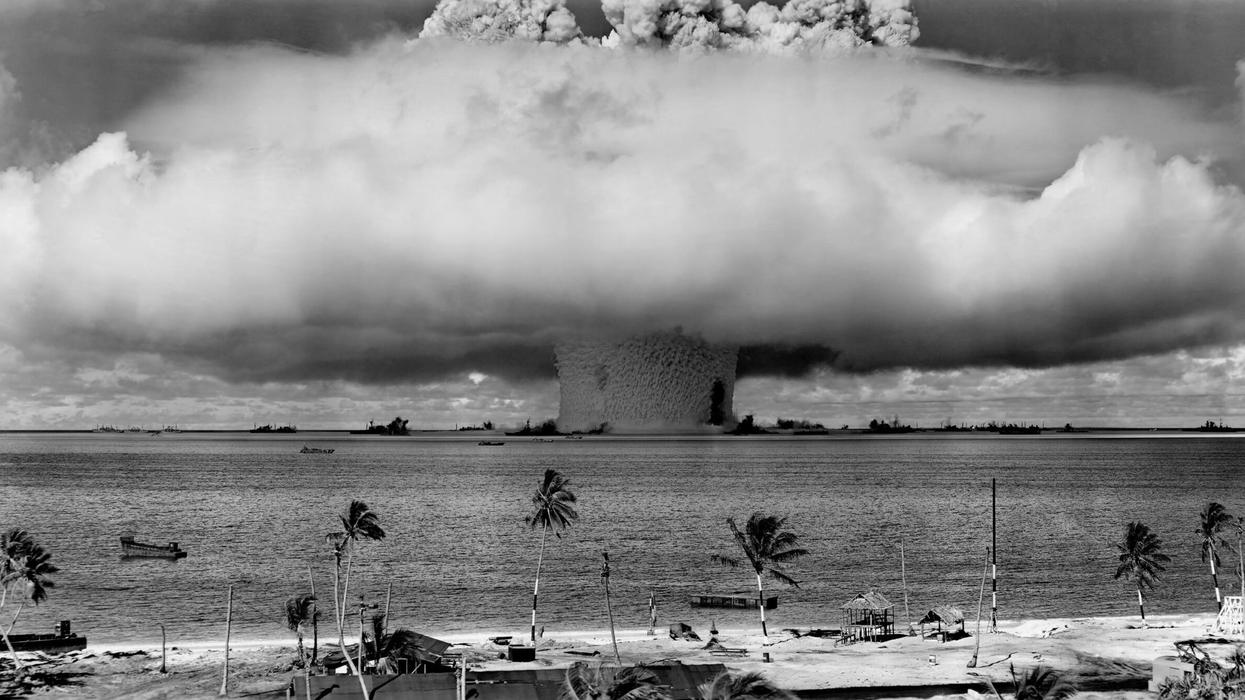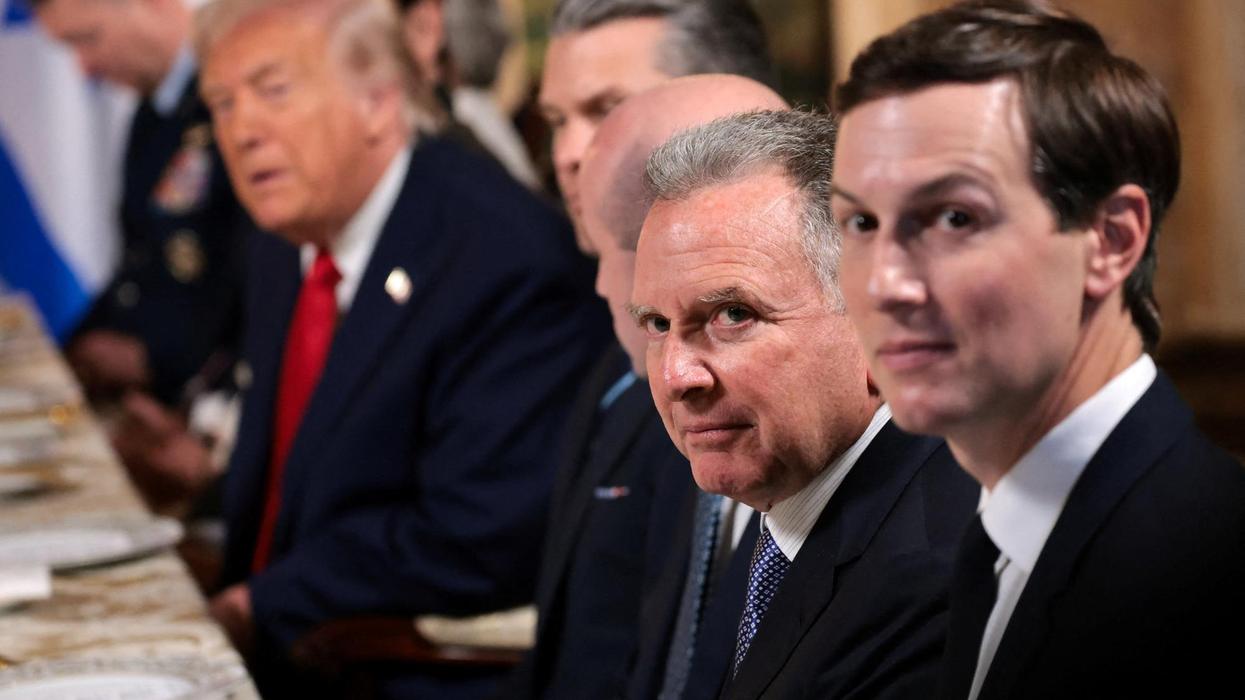How might Ukraine’s war effort go bankrupt? Developments over the past few weeks recall the words of Ernest Hemingway: “Two ways. Gradually, then suddenly.”
Should that prove true, it will spell bad news not only for those insisting on an unconditional Ukrainian victory, but also for those pressing for a diplomatic settlement of the conflict.
The gradual part is already well underway. The U.S. Congress’s decision to pass a “clean” stopgap spending bill over the weekend to fund our government for another 45 days — bowing to pressure from some GOP members to strip Ukraine aid from the bill — is the latest sign of how quickly the political tide has begun to turn. Such a vote would have been unthinkable last December, when Ukrainian President Zelensky addressed a televised joint session of Congress to fawning media reviews, and ceremoniously presented a flag signed by the determined defenders of the besieged city of Bakhmut.
Ten months later, Bakhmut has fallen. Ukraine’s counteroffensive has sputtered. A series of opinion polls has indicated that most Americans now oppose additional aid to Kyiv. When he arrived in Washington last month, Zelensky was treated more as an interloper than as an inspiring hero. House Speaker McCarthy blocked Zelensky from addressing a joint session of Congress, claiming that there was insufficient time.
Signs of “Ukraine fatigue” are appearing in Europe, too. Amid a row over Ukrainian agricultural exports that hurt EU farmers, Polish President Duda compared Ukraine to a drowning victim submerging its would-be rescuers. Hungarian President Orban has said his country will no longer provide any support to Ukraine. Slovakia was the first country to deliver fighter jets to Ukraine after Russia’s invasion, but in last weekend’s parliamentary elections, its voters opted for the party of ex-prime minister Robert Fico, who had campaigned on ending aid.
Meanwhile, the far-right Alternative for Deutschland party, long opposed to breaking with Russia over the Ukraine war, has climbed to second place in German polls.
These trends raise the prospect of a vicious circle of mutual intensification. Ukraine’s stagnation on the battlefield prompts more Americans to wonder whether billions in aid are being wasted on an unwinnable war. Growing skepticism in Europe reinforces concerns in Washington that our NATO partners will not share the burden of supporting Ukraine.
In Washington, the White House’s failure to articulate an exit strategy feeds fears of yet another American “forever war,” this time a proxy battle against a nuclear power. Worries over Western support undermine Ukraine’s military morale and political resolve, leading to further erosion of its position on the battlefield.
The combination could produce a tipping point at which the gradual erosion of Western support for Ukraine spills into an abrupt reduction or collapse. What might follow?
It is unlikely that this would result, as many claim, in Russia’s conquering all Ukrainian territory, incorporating it into the Russian Federation, and turning a resuscitated Russian military toward Poland and the Baltic States. The Kremlin almost certainly recognizes that attempting to conquer and govern the bulk of Ukraine, dominated by a well-armed and anti-Russian populace, would be a self-defeating ambition.
Moreover, Russia has demonstrated neither the capability nor the desire to fight a war of choice with the NATO alliance.
Rather, Moscow would be far more likely to turn Ukraine into a failed rump state. It would aim to capture the rest of the Donbass and perhaps the Ukrainian Black Sea coast. After creating an extended no-man’s land separating Russian forces from Ukraine-controlled territory, it would then declare a unilateral cease-fire and build extensive fortifications against new attacks.
Should Kyiv sue for peace under such duress, it could threaten Zelensky’s rule. Should it refuse, it could destroy the Ukrainian state. In either case, funding and governing what remains of Ukraine would become the West’s problem, not Russia’s.
Absent an agreed settlement of the war with Russia, few donors would contribute the hundreds of billions of dollars necessary for Ukraine’s reconstruction. Prospects for democracy and the rule of law in Ukraine would diminish. Refugee flows into Europe would intensify, fueling more divisions within NATO and the EU. Washington would be racked by debate over who lost Ukraine.
In these circumstances, Putin would have few incentives to seek compromise with either Ukraine or the West, leaving the broader East-West relationship in a dangerously unstable state of confrontation, lacking the arms control and conflict-management mechanisms that helped prevent the Cold War from turning hot.
Europe would have to contend not with a new Iron Curtain, but rather with a gaping, Libya-like wound that could infect the West for years to come. Russian military cooperation with China, Iran, and North Korea would advance.
All this is of course far from inevitable. But those tempted to believe that the United States could end the war by simply ending its aid to Ukraine should think hard about these possibilities. And those insisting that the West can simply double down on delivering aid to Ukraine should recognize that present trends bode ill for the Biden administration’s “as long as it takes” strategy, either for winning the war outright or for turning Ukraine into a thriving fortress state, capable of holding off the Russians for many years to come.
Avoiding such sobering possibilities will require compromise. The White House will have to compromise with domestic opponents of aid by making clear — at least behind closed doors — its plans for marrying military aid to a viable exit strategy. Opponents of aid will have to compromise with proponents to ensure that Ukraine does not collapse altogether, with all the attendant implications for the West and the world.
The West and Russia will each have to compromise – not necessarily over territory, but certainly over the broader architecture of European security and Ukraine’s place in it.
Compromise is seldom possible unless both sides have cards to play in negotiations. The United States should not remove cards from its hand by ending aid to Ukraine unilaterally or playing them prematurely. But unless it moves quickly to complement aid with diplomacy, it may find that the opportunity to play its cards has suddenly disappeared.
- Are US officials signaling a new ‘forever war’ in Ukraine? ›
- What happens if Ukraine aid runs out? - Responsible Statecraft ›
- Diplomacy Watch: Ukraine’s arduous path to EU accession | Responsible Statecraft ›
















